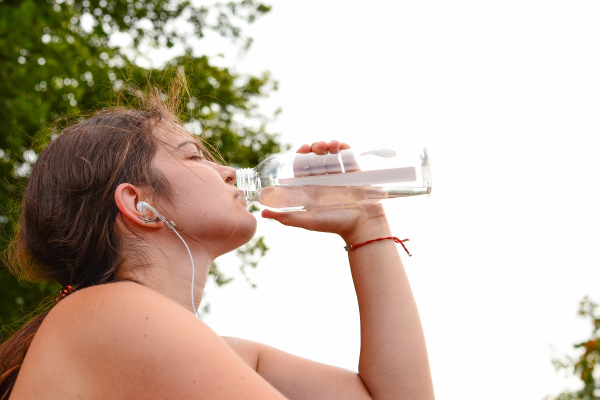Top Foods to Avoid in Hot Weather by Gastroenterologist
 Summer Diet Precautions
Summer Diet PrecautionsWhen summer arrives with its sweltering heat, it's essential to pay close attention to what you eat. High temperatures combined with certain foods can strain your body and worsen how you feel.
How Heat Affects the Body
In hot weather, the body works harder to maintain a stable temperature. Some foods can exacerbate this effort by requiring more energy to digest. According to a gastroenterologist, adapting your diet to ease this burden can help avoid discomfort and keep you feeling your best.
Fatty Foods
Digesting fatty meals demands significant energy, raising your internal body temperature. Additionally, these foods can put extra strain on your heart, which is already working hard to cool the body down.
Spicy Foods
Though some cultures believe spicy food aids cooling through sweating, it can cause discomfort and digestive issues for some people. Sweating can cool the body, but in extreme heat, it can also lead to dehydration. Spicy ingredients like capsaicin increase thermogenesis, raising body temperature.
Alcohol
Alcohol dehydrates the body. Hot and humid summer days already lead to fluid loss through sweat, and alcohol enhances this loss through frequent urination, increasing the risk of heatstroke.
High-Sodium Foods
Salty snacks and foods high in sodium cause fluid retention and increase the body's need for water. Combined with fluid loss through sweating, this can lead to dehydration. Salty foods in the heat can also cause swelling.
Protein-Rich Foods
Digesting proteins in hot weather is challenging, as it requires a lot of energy and raises internal body temperature. It's best to avoid meats, especially red meat, and other protein-heavy foods during hot days.
Simple Carbohydrates
Foods high in simple carbohydrates can cause dehydration and sudden spikes in blood sugar levels, leading to fatigue and discomfort. It's wise to avoid items like white bread, sweets, and fast food in high temperatures. Some foods, such as baked goods with cream, spoil quickly, increasing the risk of food poisoning.
Caffeinated Beverages
Like alcohol, caffeine has a diuretic effect, promoting dehydration, which can be harmful in hot weather. Caffeinated drinks also raise body temperature.
Mayonnaise-Based Foods and Salads with Dressings
High in fats and calories, these foods are hard to digest, placing additional strain on the body, increasing internal temperature, and causing abdominal discomfort. Moreover, such foods spoil quickly, raising the risk of food poisoning.
Perishable Foods
Be very cautious with perishable items like seafood, dairy products, semi-finished products, raw meat, and fruits, especially when cut. These foods spoil rapidly in the heat and can harbor harmful microorganisms and mold, leading to foodborne illnesses.
Recommended Foods for Hot Weather
Maintaining hydration and providing your body with easily digestible energy is crucial in high temperatures. Here are some recommended foods for hot weather:
Water and Hydrating Beverages: Herbal and green teas, non-carbonated mineral water. Avoid alcohol and caffeine due to their diuretic effects.
Light Soups and Broths: Cold soups like okroshka or gazpacho can quench thirst effectively.
Water-Rich Fruits and Vegetables: Watermelon, melon, cucumbers, tomatoes, strawberries, and peaches.
Light Proteins: Chicken breast, fish, legumes are easier to digest than fatty meats.
Potassium-Rich Foods: Bananas, oranges, potatoes, and sweet potatoes help restore electrolyte balance.
Whole Grains: Porridges, whole grain bread provide complex carbohydrates and B vitamins.
Yogurt and Kefir: These contain probiotics, supporting gut health, which is especially important when changing diets in the heat.
Nuts and Seeds: A good energy source and healthy fats, though they should be consumed in moderation as they are heavy to digest.









